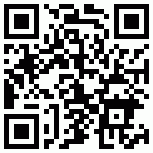Iran says the International Atomic Energy Agency (IAEA) is fully aware of its responsibilities and does not need EU foreign affairs chief Catherine Ashton to remind it of its tasks.

 QR code
QR code

Iran raps EU over declining invitation
10 Jan 2011 - 13:27
Iran says the International Atomic Energy Agency (IAEA) is fully aware of its responsibilities and does not need EU foreign affairs chief Catherine Ashton to remind it of its tasks.
The reaction came after Ashton declined Iran's invitation to tour country's nuclear facilities, including Natanz enrichment facility and Arak heavy water reactor, saying the task should be carried out by the IAEA.
Last Tuesday, Tehran invited envoys representing geographical and political groups in the Vienna-based IAEA, including some members of the P5+1 -- Britain, China, France, Russia, the US plus Germany --, the European Union, the Group of 77 and the Non-Aligned Movement (NAM), to tour Iran's nuclear sites.
"We will be welcoming the fact that Iran is interested in having those visit at the sites, but the role and responsibility for doing that rests with the IAEA,” Ashton said.
Head of the National Security and Foreign Policy Committee of Iran's Majlis (parliament) Alaeddin Boroujerdi slammed Ashton's rejection of Iran's invitation, saying there is no logic behind the West's decision to decline Tehran's offer.
"The Islamic Republic has demonstrated its sincerity through inviting representatives and diplomats of various countries to visit its nuclear sites," IRNA quoted Boroujerdi as saying on Sunday.
Under the Nuclear Non-Proliferation Treaty (NPT), the IAEA is currently conducting its inspections regularly and its cameras are active too, the senior Iranian legislator added.
Iran's invitation comes ahead of multifaceted talks with six major world powers, including the five permanent members of the UN Security Council plus Germany scheduled for late January in the Turkish city of Istanbul.
“What the countries such as the United States are doing is only inventing excuses because the invited states can get familiar with Iran's nuclear sites by visiting them, Boroujerdi argued.
The senior Iranian politician cited Iran's initiative as the state's winning card in the upcoming Istanbul talks.
“Europe has turned down Tehran's offer, because it does not want to face this positive privilege of the country in future talks,” he further explained.
The Vienna representatives of different countries paid a similar visit to Isfahan's Uranium Conversion Facility (UCF) in 2006.
During the visit, which is scheduled for January 15 and 16, the visiting ambassadors are set to meet with Iranian officials as well.
The United States and its Western allies accuse Iran of pursuing secret military intentions in its nuclear work, a claim strongly rejected by Tehran.
Iran has repeatedly refuted Western claims that it is following a military nuclear program, arguing that as a member of the IAEA and a signatory to the NPT, it has the right to use peaceful nuclear energy.
Story Code: 36382